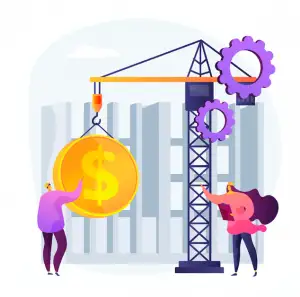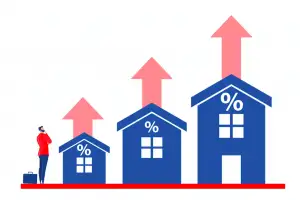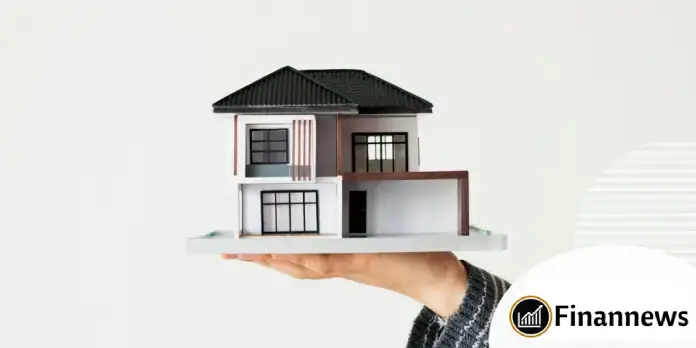Is investing in real estate? The real estate investment sector in recent years has also suffered a severe backlash.
The causes? The economic crisis is certainly, but also the greater reluctance of banks to grant the necessary credits.
Here’s what happened, explained very quickly and for “non-experts” like me and you:
- The price of real estate has decreased, impoverishing in fact those who had already decided to invest in real estate in the past;
- Companies and private individuals who instead managed to take the leap to invest in apartments or commercial premises at lower costs, then had to put on stand by restructuring, redevelopment and sales due to the credit squeeze.
 Less money, therefore, less trades and also less new properties to invest in.
Less money, therefore, less trades and also less new properties to invest in.
Not all evils come to harm, do you agree? The crisis has, in fact, helped to speed up some processes of change already underway in the real estate market, giving the impetus to forms of investment in alternative properties.
If you don’t know what I’m talking about but you’re curious to find out, in the paragraphs that follow I’ll tell you everything there is to know about the news of the real estate market.
So, I recommend, fasten the seat belts well and we leave together on this journey to discover the real summer of the future!
How to Invest in Real Estate Today
It is natural that, when it comes to investing in real estate today, the thought goes first of all to the sale of apartments, houses and commercial premises.
However, today there are more than one way to invest in this area.
Instead of buying houses and then selling them, as due to falling prices you risk selling at a lower cost than you bought, you could buy real estate to rent them, thus getting an extra gain from other people.
Or, if this is also prohibitive for you, you might think about real estate crowdfunding.
What is it about? Let’s find out along with all the other ways to invest in real estate today.
1. Invest in REIT
REITs, or real estate investment trusts, allow you to invest in real estate without buying physical real estate.
Often compared to mutual funds, REITs actually correspond to companies that own commercial real estate, office premises, apartments, restaurants and hotels, which sell to private individuals part of their shares in exchange for dividends.
However, not all REITs are listed on the stock exchange, but there are also non-traded REITs that, although often convenient and/or with even higher annuities, are also much riskier because they are more difficult to assess.
I therefore recommend you, if you want to try this type of real estate investment, to always opt only for REITs listed and regulated.
2. Invest with real estate crowfunding
Real estate crowdfunding, just like crowfunding in other sectors, is a form of bottom-up financing that has as its object new real estate constructions or renovations of existing buildings.
This is possible thanks to real estate crowfunding online platforms where builders or companies that promote redevelopment projects can publish their collection campaigns.
All those who subscribe to the site can view the projects and decide on which to invest, receiving in exchange a share of participation in the company (equity crowfunding) or a return on investment through interest on the lent shares (crowlending or lending peer to real estate).
The main crowfunding platforms are also managed by experts in the field, which guarantee a careful selection of campaigns, choosing only those that can lead to certain results and that often – as a further incentive to grant money – also have a positive social impact.
Of course, real estate crowfunding also has risks, so it is always preferable not to invest high figures, especially when you do not have enough liquidity. In any case, it is still a good solution to invest in real estate for those who do not have large capital.
3. Aim for rents
Buying an apartment and then reselling it is the first way to speculate in the real estate market. However, the tightening of credit to greatly reduced the volume of sales and forced the sellers to reduce prices in the negotiations.
Those who now still have enough money to invest in real estate could take more advantage of buying a condominium, a house or an office and then rent it to third parties.
The rent of one or more real estate units can generate an extra annuity not to be underestimated, with which to cover the expenses of a mortgage and any other maintenance needs of the property.
4. Fai house hacking
A particular form of rental-based real estate investment is the house hacking.
This term specifically alludes to the practice of renting a property in which you live or work yourself. It can be, for example, an apartment with several rooms, or a building with more housing units and / or commercial funds.
Sharing the property with other people will not only allow you to get extra income with which to cover the purchase costs and your personal expenses, but will also allow you to break down some building management and maintenance fees.
5. Do coworking
The house hacking is a type of investment in real estate that can obviously concern both buildings for residential use (think of the houses for students in which the owner of the apartment also lives), and commercial premises.
In this second case, an increasingly widespread form of sharing today is coworking, which consists in the joint use of a workspace by several companies.
A company that had a larger working space than necessary, or that does not make continuous use of some environments (for example, the meeting room), could make an additional profit by renting them to third parties.
4. Throw in the house flipping
What does it consist of? In practice, what you have to do is buy a decadent house at a low price, renew it as cheaply as possible and then resell it to make a profit.
That’s it may seem easy, but there’s actually a lot of math work behind flipping. In fact, it will be necessary to have a very accurate estimate of how much the restructuring will cost in order to translate expenses into earnings as quickly as possible.
The risk, in fact, is to be forced to keep the house for more than expected time, perhaps having to pay a mortgage without generating any income.
5. Rent a room
If you don’t have the chance to buy an entire property to resell it or rent some units, you can also think about renting part of your existing house.
– What? The most appropriate tool for this type of real estate investment is the Airbnb short-term rental siteAirbnb.
This platform, in exchange for the payment of some commissions, allows you to become a host that rents its properties to already selected tenants and for periods not too long.
This way you could easily generate extra earnings with the real estate you already have, without having the problem of having to spend time and money to find new renters every time.
Where to invest in real estate
As we have seen in the previous paragraphs today, the ways of investing real estate are really many and much more complex.
Also from a logistical point of view, if once most of the real estate investments were concentrated in large urban centers, today in fact the scope of investments in real estate has expanded, extending to other areas.
The emergence of an idea of ecological and sustainable tourism and the concept of “escape from the city” have made interesting for the purpose of investing in apartments even areas that were not previously taken into account, giving new life and momentum to the entire sector.
How to invest in real estate abroad
I just finished saying that real estate investment opportunities are everywhere today. Why not consider the possibility of real estate investment abroad? Undoubtedly, even here there is the promise to quickly get great returns, but as long as you move in the right way.
The main thing to consider in this case is that the real estate sector is not a “liquid good”. Unlike other forms of investment such as that in stocks, gold or (why not?) cryptocurrencies, you can get stuck with a property for years.
In addition, as the recession of recent years has shown, house prices do not always rise. Indeed, in a context of crisis they are among the first to fall into a dive because it lacks the liquidity necessary to buy.
For this reason, when you buy a property abroad, you need to first make sure that it is in a place that will remain desirable for 10, 20, even 50 years in the future, regardless of what the economic market has in store.
Buy real estate abroad: how to know if you are making a good deal
Another aspect to consider is how to compare prices between real estate that are found in different countries so that they choose the most profitable solution. This, in fact, is made difficult by other parameters such as the cost of local living, GDP per capita and local purchasing power.
Since there is no shortened way to compare the cost between multiple properties in different countries around the world, you will need to make a large number of ratings. For example, some standardize prices by using the cost in dollars per square meter as a unit of measurement. However, to calculate your return on investment and rental returns, you will still find local currency in mind.
Only then will you be able to determine what is, for example, the best investment between a property in Kuala Lumpur, Malaysia, and a similar one in Bangkok, Thailand.
You will also need to take into account local contexts. For example, both economically and politically, Malaysia is much more similar to the mid-range EU countries than Thailand, which has a level of development more similar to China and some Caribbean countries. Tourism has certainly influenced the value of real estate in Thailand, however the basic economic conditions are still lower than those of other nations.
Then there are the supports that can give governments to the real estate investment that comes from abroad. A castle with a vineyard in France could cost you much less than a ruin in another part of the world thanks to the help that the French state gives to historical properties.
In short, the purchase of a house abroad undoubtedly requires a greater analysis effort. If you do not have the necessary tools, it is always good to rely on companies specialized in brokerage and real estate negotiation.
Investing in real estate abroad when it is worth
A legend has it that the Siam king gave a white elephant to his most deserving courtiers.
This was seen as a great honor, but in reality it was a horrible curse, for you had to feed it and keep it healthy.
This also applies to all real estate, but to even more foreign ones.
The regulation of the real estate market of some governments is full, in fact, of white elephants ready to be given away!
In Somalia, for example, housing is practically given away but economic and political conditions are so disastrous as to make any investment uncertain.
On the contrary, North Korea hinders the penetration of foreign money in every way, but once you have invested you are protected by the laws of the same state.
All the other countries are, in fact, between these two extremes: how to know, therefore, which of these is a good deal? Inform yourself, informed in and informing yourself! Above all, ask for the support of experienced consultants in the field and operating in the country where you plan to invest.
Should you invest in real estate?
Let’s go back to the main question: should you invest in real estate?
The answer seems obvious to me is “yes.” That said, like all forms of investment, they need to be done judiciously to agree more to you investor.
The aspects to be evaluated at the beginning are many:
- How much time do you want to spend on real estate investing?
- How much capital are you willing to invest?
- Do you want to be the one to deal directly with the negotiations or do you want to rely on third parties?
These are inevitably the first questions to ask, then all the others (sigh!).
Final advice. If you don’t have specific skills and your budget is scarce, investing in real estate through a REIT or a crowdfunding platform, or renting a room from your property are definitely the first forms of investment to consider.



